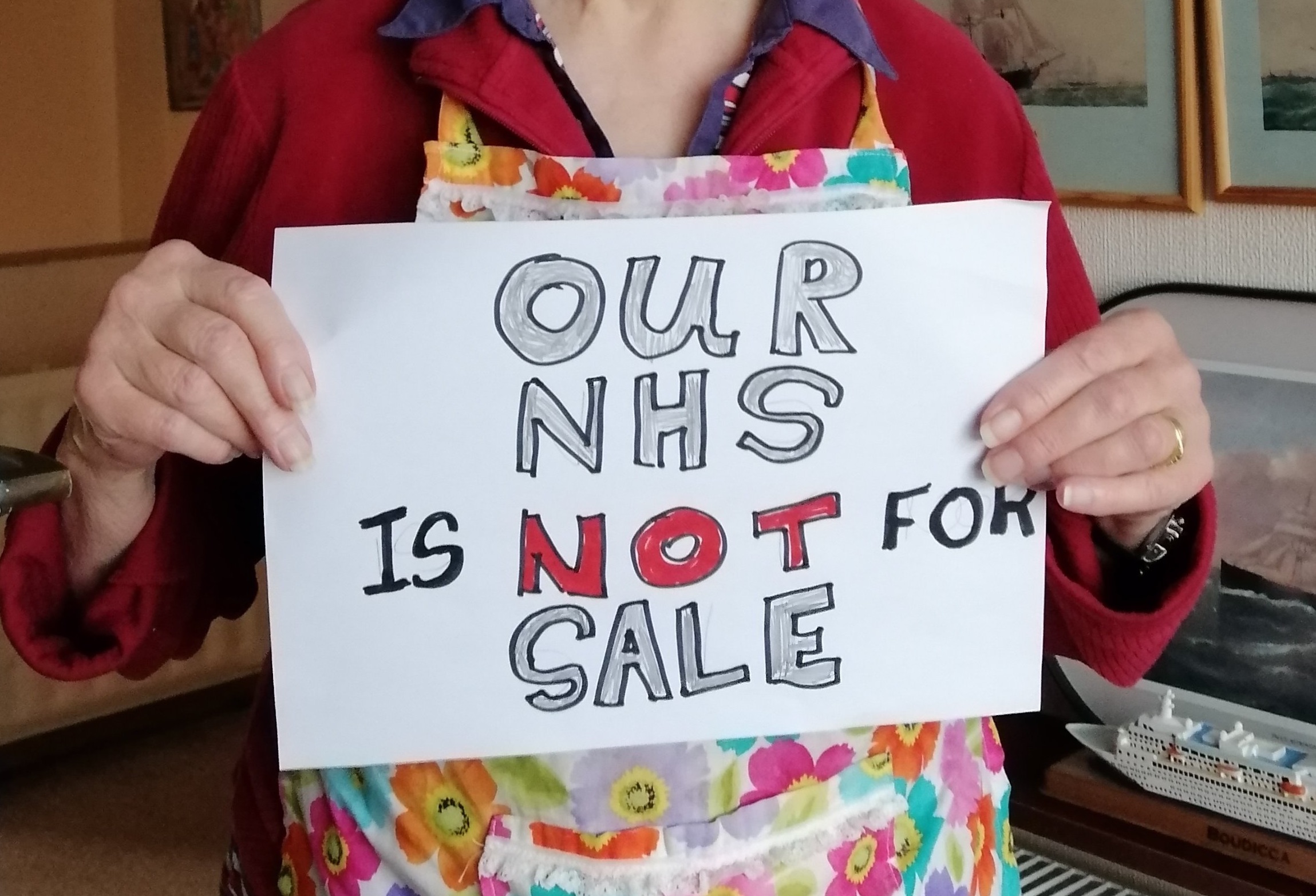Trump or Biden, trade deals still threaten Britain’s NHS
Open Democracy | 2 November 2020
Trump or Biden, trade deals still threaten Britain’s NHS
by Ben Horton
The U.S. elections take place amidst record-breaking early turnout as well as grim reports of unprecedented levels of voter suppression. And the stakes could not be higher.
Regardless of what happens, the new (or incumbent) president will have an eye trained on Free Trade Agreements (FTAs). Trump has made clear his willingness to push US corporate agendas onto an isolated UK. Biden may be less interested than Trump in prioritising a UK deal (and providing political cover to the Brexit project). But the Democrat candidate’s track record on trade means that under a Biden presidency, too, there could be grave global trade-related consequences for the NHS and the patients who rely on it, in particular when it comes to access to drugs and treatments
So what is an FTA, and why are they important ? An FTA dictates the terms of economic trade, either directly between two countries such as the US and the UK, or between larger blocs of countries. They cover policies like tariffs, taxes, and intellectual property - in essence, what we sell, what we buy, and how much we pay for it.
With Brexit looming, the UK desperately needs to strike trade deals in order to offset the economic shock of leaving the EU, so the British government is in a much weaker negotiating position than before. Knowing this, the US will exploit their advantage and seek to force concessions from the UK across the board, most crucially when it comes to the pricing of drugs and medicines purchased by the NHS to treat patients like you and I.
Drug pricing and the US-UK FTA was a big issue this time last year in the general election, with Labour highlighting that under a new agreement the NHS spending on US-made drugs and medicines could skyrocket. The Conservatives have persistently responded that the NHS is “not for sale” but that’s not what’s at stake in this instance. US pharmaceutical companies aren’t looking to buy the NHS, instead they are focused on extracting as much money from it as possible by gouging prices in a trade deal that favours them.
This isn’t speculation, either – it’s well-documented that drug prices have been discussed at length throughout the trade talks, with US negotiators expressing excitement around ‘liberalisation’, a euphemism for the relaxation of rules around issues such as agriculture (chlorinated chicken, anyone ?) and indeed, how much they are able to charge the NHS for medicine.
With regards to drug pricing the outcome of Tuesday night’s election is almost immaterial. The Trump administration has stated repeatedly that increasing drugs prices overseas is a priority, with the POTUS himself blaming foreign “freeloading” foreign countries for high domestic drug prices (rather than, I don’t know, for-profit healthcare and the largest pharmaceutical lobby in the world !) Biden, meanwhile, has recent experience of going to bat for the US pharmaceutical industry - under the Biden-Obama administration the US sought to join the Trans-Pacific Partnership (TPP, now termed CPTPP after some amendments) which offers similar, and in some cases even worse leg-ups for pharmaceutical firms. The Trump administration exited the TPP but Biden may seek to return to it in its new iteration, which would force the UK to negotiate on its terms when it comes to trade.
Whatever happens, the coming months will be crucial when it comes to the future of the NHS. If pharmaceutical companies are given the green light to ramp up prices will mean that the NHS is unable to afford some drugs and treatments, and will be forced to either ration them to patients or deny them treatment outright. A trade deal that creates a windfall for US pharma companies could very likely increase suffering and death from treatable conditions here in the UK.
Patients and the NHS come before corporate profit. An eye-watering amount of money and political will is being exerted to re-orient the UK towards a for-profit healthcare system, but we are fighting back, and together, we can win.






